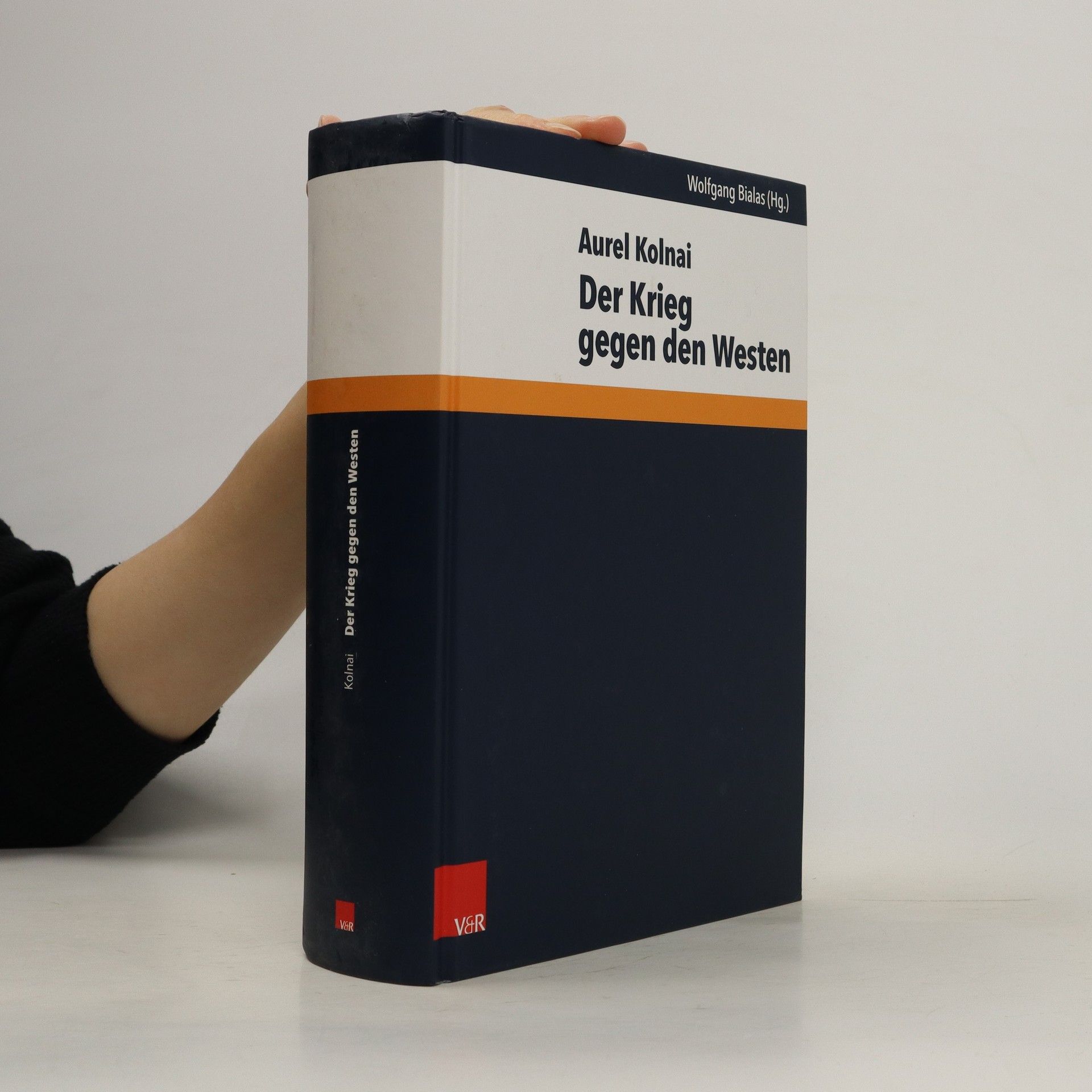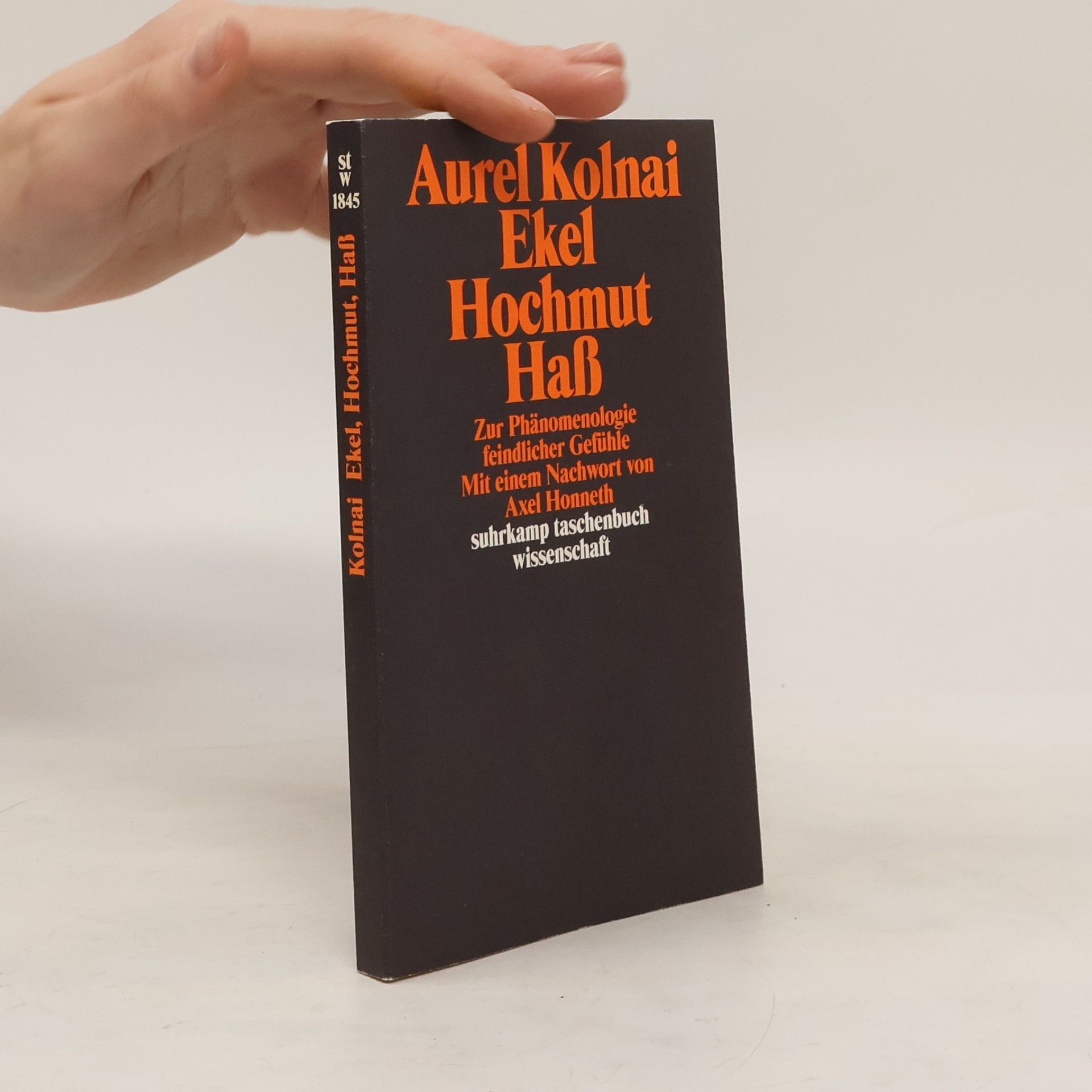This edition of Aurel Kolnai’s War against the West (1938) brings one of the first English-language critiques of Nazi ideology to a German-speaking audience interested in contemporary approaches to critically examining Nazism. Kolnai’s main goal was to warn the Western world that Nazism threatened its core and its way of life. He accomplished this in his discussion of the basic elements of Nazi ideology, such as anti-Semitism, racial nationalism, and the anti-liberal concept of a people’s community (Volksgemeinschaft), which, in his view, amounted to replacing Christianity with the political religion of race.
Aurel Kolnai Book order (chronological)
December 5, 1900 – June 28, 1973


Ekel
- 176 pages
- 7 hours of reading
Aurel Kolnai (1900–1973), ein deutschsprachiger Philosoph jüdischer Herkunft, der in der Tradition der Phänomenologie Husserls und Schelers groß wurde und nach seinem Exil in Nordamerika an der Universität Oxford lehrte, ist mit seinen Studien zu Gefühlen der Aversion zu spätem Ruhm in der analytischen Philosophie Englands gelangt. Die hier versammelten Beiträge über den Ekel, den Haß und den Hochmut zeigen einen Autor, der die herkömmliche Kluft zwischen kontinentaler und analytischer Tradition spielerisch überwindet, indem er in phänomenologischer Einstellung die Struktur und den Gehalt feindlicher Gefühle skrupulös erkundet.